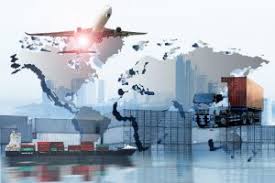
There are questions about the role of Africa in International Trade.
The statistics are not encouraging. It is said that Africa only contributes 2% to international trade. That low sum is as a result of the limited quantity of goods available for sale as well as the basic level at which Africa exports its products. Africa supplies mainly raw materials or unprocessed goods which are subject to price fluctuations as determined by the international markets.
There is no criticism of Africa or her leaders. The countries have taken the right steps in joining the World Trade Organisation. They participate in the various bilateral and multilateral negotiations to promote international commerce. In doing so, Africa is increasing its presence in the international market. However the effect of this, is that imported goods in the various countries, further weakens industrialisation in the receiving countries.
Africa however, needs to be more intentional about international trade. If Africa were to increase its world share from 2% to 3%, that one percentage increase would generate about $70 billion of additional income annually for Africa. This increase is entirely feasible. Africa is fast becoming an emerging market with international businesses looking for untapped opportunities. In the last year, Africa saw increased interest from Europe in addition to investments from China. Africa can use these opportunities in Foreign Direct Investments to add more value to products particularly agricultural products for which Africa is well resourced.
There is now an even more welcome development. Africa is looking to trade within itself to create its own economic community. The Africa Continental Free Trade Agreement has been signed by 44 African countries and in December 2018 the first Intra African Trade Fair was held in Egypt. What this means for Africa, will be a topic worth considering further.
